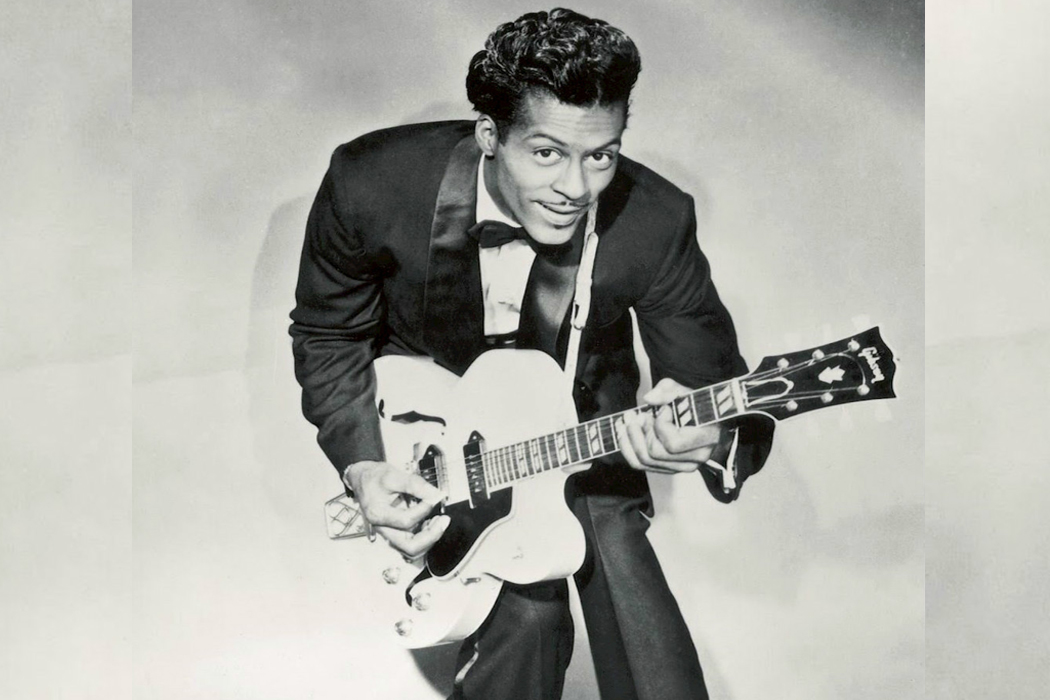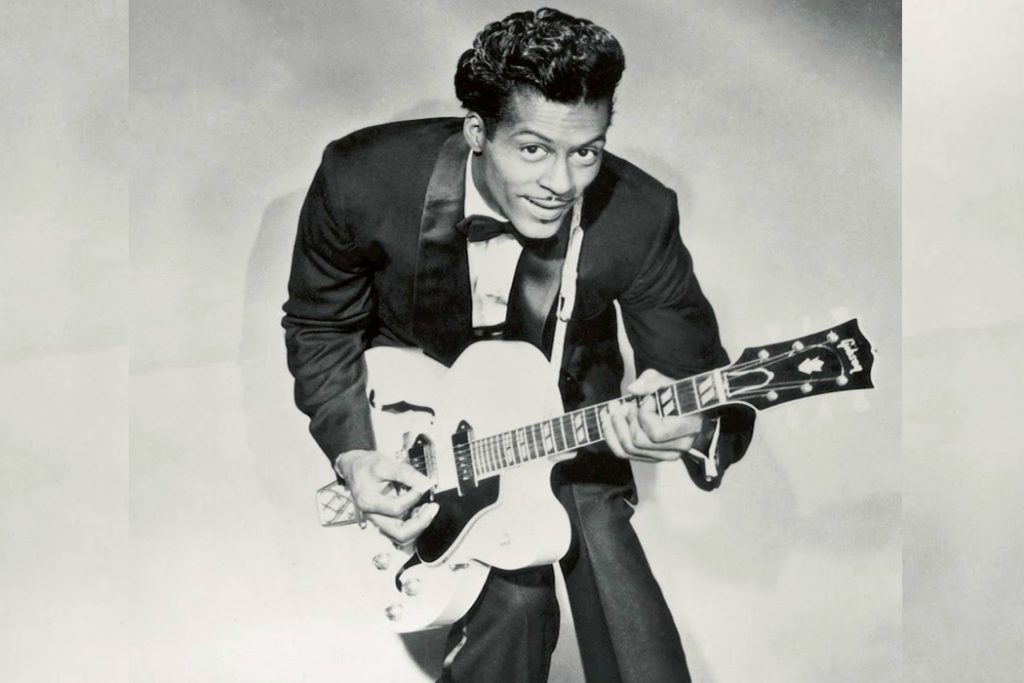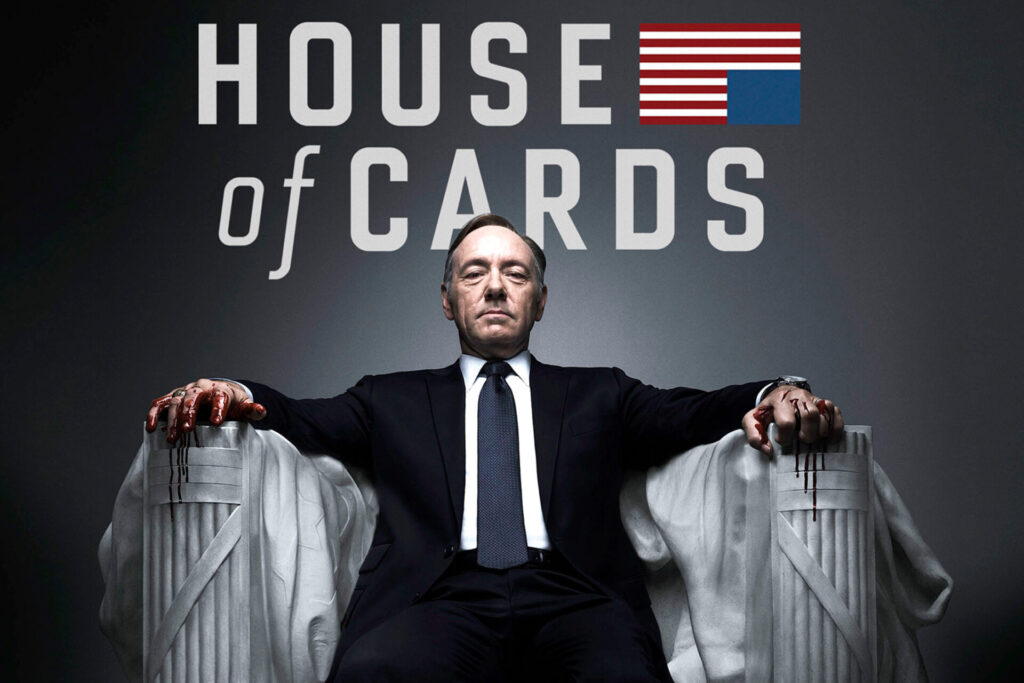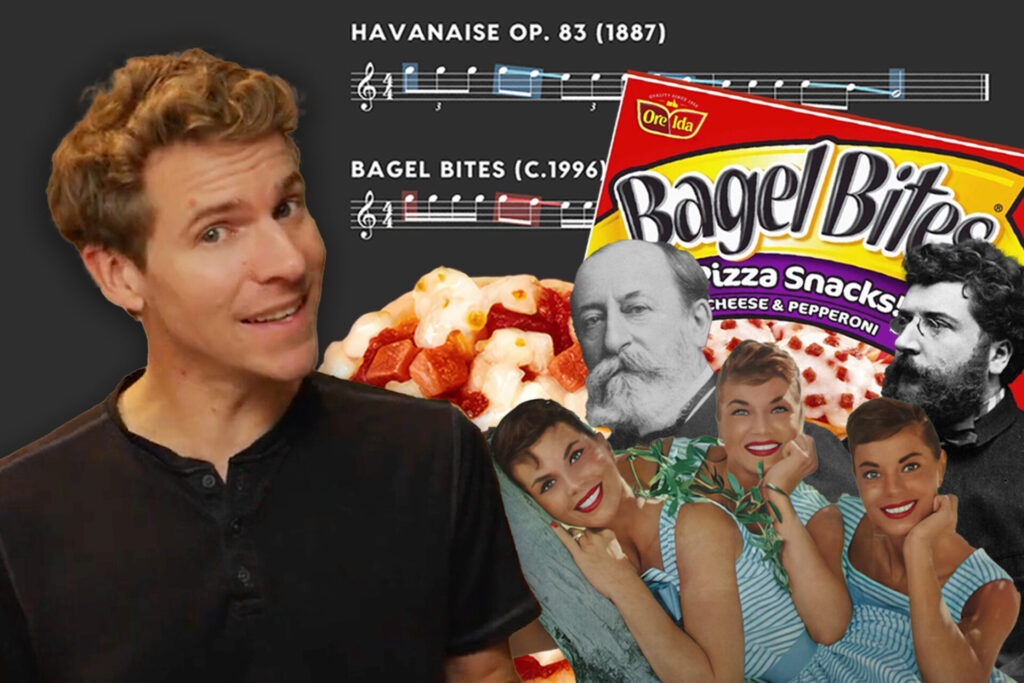
+ Welcome to Soundfly! We help curious musicians meet their goals with creative online courses. Whatever you want to learn, whenever you need to learn it. Subscribe now to start learning on the ’Fly.
Nothing ruins an artist’s legacy like surviving into old age, especially in the realm of popular music.
Their early innovations become overshadowed by later mediocrity, social and legal gaffes, and a return to obscurity. As a result, some of these artists, the ones who survived, are strangely forgotten. The occasion never arises to dissect their genius and trace their influence.
I always want to talk about Chuck Berry, though. And since he passed in 2017, I have a lot to say about him. He was one of the finest American songwriters of the 20th century.
My earliest exposure to Chuck Berry was, like a lot of us who grew up in the eighties, the scene in Back to the Future where Marty McFly “invents” rock and roll before a crowd of white kids along with a capable but wary musical ensemble of African-American men by playing “Johnny B. Goode.” One of the guys in the band calls up his brother, Chuck Berry, to share with him the new sound, and the rest is history. So this mighty branch of the tree of Afro-American music, whose roots go down through the slave chants and Negro spirituals all the way back to Africa, was invented by a white teenager.
It’s a little too close to the accepted truth to be comfortable, since my next exposure to Chuck Berry was the Beatles’ reverent versions of his songs “Roll Over Beethoven” and “Rock and Roll Music” — not to mention the Beach Boys’ “Surfin’ U.S.A.”, which I later learned is really “Sweet Little Sixteen.”
Worshipful as these 1960s tributes were, there was something lost in translation.
Seems like Chuck himself took it all in stride. Discovering his recordings in my early twenties, I was struck by their playfulness, subversive cleverness, and raucous energy. Unlike the Black rhythm and blues and doo-wop artists whose songs were re-recorded, sanitized, sterilized by white artists to be acceptable listening material for white teenagers, Chuck Berry simply wrote with white teenagers in mind in the first place.
With songs like “School Days,” “Roll Over Beethoven,” and “Sweet Little Sixteen,” Berry romanticized the experience of the American teenager, a lyrical trope which continues to this day.
+ Learn more on Soundfly: Learn about the history of the blues, R&B, and early rock n’ roll, including how Chuck Berry’s “School Days” functions as a 12-bar blues, in Soundfly’s free online course, A Conversation With the Blues.
But it would be underestimating Berry’s genius as a songwriter to suggest that his savvy was limited to just knowing what would sell. His songs are funny, mischievous, sexy, and full of Berry’s unique juxtaposition of slang and nonstandard English right alongside expert wordplay and sophisticated vocabulary not usually found in pop songs.
But even more remarkable still was Berry’s daring references to race and class in his songs, right in the thick of the Jim Crow era.
“Johnny B. Goode” was originally “a colored boy,” not “a country boy.” But even though that one didn’t make it to the recording, Berry was willing to push the envelope. Take “Brown-Eyed Handsome Man.”
The title of the song is a euphemism for a person of color, something that seems obvious in 2017 but could hardly have been more bold in 1956. Full of winking references to race and the sexual desirability of men of color, it’s brazen and unapologetically funny… But you could miss the whole thing if you weren’t in on the joke.
“Memphis, Tennessee” is a song that gets me every time. I hate to give away the twist, so if you’ve never heard it, listen now:
So Chuck Berry, gifted storyteller, enraptures us and makes us empathize with the absent Black father, a figure whose story is decidedly underrepresented in the world and is rarely seen as sympathetic.
There’s something beguiling about Chuck Berry’s singing: like Ella Fitzgerald, there always seems to be a smile behind his words. While sometimes this means that he doesn’t dip convincingly into darker emotions, this style is devastating on a song like “Memphis, Tennessee,” where the narrator is trying desperately to hold onto hope.
Others can speak about Chuck Berry’s influence on generations of guitarists, his showmanship, and how he, not Marty McFly, invented rock and roll. For me, it’s all about his oeuvre. His songs, and particularly his lyrics, made me feel as though I had a smart, worldly, quick-witted friend who could always find the humor in the mundane.
There could be no Bob Dylan without Chuck Berry. No Beatles, no Stones. He was the best.
Here are a few of my favorite lines of his.
From “Brown-Eyed Handsome Man”:
“Beautiful daughter couldn’t make up her mind
Between a doctor and a lawyer man
Her mother told her daughter go out and find yourself a brown-eyed handsome man
Just like your daddy, he’s a brown-eyed handsome man.”
From “You Can’t Catch Me”:
“So I let out my wings and then I blew my horn
Bye bye New Jersey, I’ve become airborne.”
From “Too Much Monkey Business”:
“Workin’ in the fillin’ station, too many tasks
Wipe the windows, check the tires, check the oil, dollar of gas, ahhh!”
From “Roll Over Beethoven”:
“Well, if you feel it and like it
go get your lover, then reel and rock it,
roll it over and move on up just a trifle further
and reel and rock with one another.”
From “Sweet Little Sixteen”:
“Oh Daddy, Daddy
I beg of you
Whisper to Mommy
It’s alright with you.”
From “Memphis, Tennessee”:
“Last time I saw Marie she was waving me good-bye
With hurry home drops on her cheek that trickled from her eye.”
Improve all aspects of your music with Soundfly.
Subscribe to get unlimited access to all of Soundfly’s course content, an invitation to join our members-only Slack community forum, exclusive perks from partner brands, and massive discounts on personalized mentor sessions for guided learning. Learn what you want, whenever you want, with total freedom.




